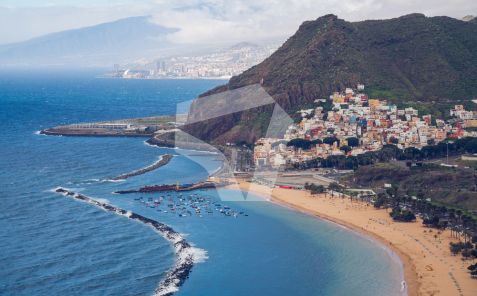The Difference Between an NIE and a Residence Permit in Spain
Having an NIE does not mean you are legally resident in Spain. In this post we talk about the main questions that arise concerning this issue
07/09/2022

📝- Index
I have the NIE but I want to be legally resident in Spain: what procedure should I follow? Does having the NIE grant you the same rights as a residence permit? This is one of the questions that foreigners interested in obtaining residence in Spain most often ask us.
First, it is important to know that the NIE is not the same as legal residence status. Having the NIE does not mean having the same rights that the residence permit gives. They are different concepts and situations that produce different legal effects.
In addition to the NIE and the status of legal residence, in Spain there is a document, the TIE, which also has several differences with respect to the NIE.
Differences between NIE, TIE and legal residence in Spain
The NIE is the Foreigner Identification Number used to identify yourself to the Spanish Administration.
In general, a foreign citizen is assigned the NIE when they first contact the bodies of the Spanish Administration (it is even possible that the foreigner is not actually in Spain at that moment). Most of the acts that a foreigner performs with the Spanish Administration will be done using this NIE which, let’s remember, is only a number.
A foreigner may have an NIE but not have legal residence; a state that must be achieved through a different process.
On the other hand, the TIE is the Foreigner Identity Card: we are talking about a physical document on which identification data is indicated, including a photograph, the address, the NIE, and the type of stay or residence permit that is held in Spain.
In this other post we give more detail about the differences between the NIE and the TIE. We also tell you why the NIE and legal residence are not the same: Is having an NIE the same as being a resident?
Now that you know the main differences between these three concepts, we return to the question that is the subject of this post: How do you obtain legal residence in Spain, once you have obtained the NIE?
Authorization of legal residence in Spain
As we have commented, having an NIE does not mean having the same rights that are granted by the status of legal resident in Spain. This must be obtained by processing and obtaining a type of residence permit, which will allow you, as a foreigner, to reside in Spain.
The condition of residence or legal stay authorizes living or staying in Spain legally. In addition, some types of residence permits allow you to work legally in Spain.
Normally, legal residence is determined by an administrative decision granting this status.
Remember: when a non-EU foreigner wants to reside in Spain, they must apply for a residence permit. There are many types of permits in our country, each designed for specific situations. Adlanter can help you process the residence permit that best suits your personal and family situation.
Normally, the type of residence permit given to the foreign person appears on the TIE.
I want to be legally resident in Spain
First of all, to be a legal resident in Spain you have to take into account several scenarios prior to the processing of the permit. Are you a non-EU citizen (from outside the EU), or an EU citizen, or a national of countries that are part of the Agreement on the European Economic Area or a national of Switzerland?
If you are a non-EU citizen and want to reside in Spain, you need to apply for a residence permit. As we have discussed, there are many depending on the situation you are in. Our consultants can help you choose the type of residence permit that best suits your characteristics. Please note that depending on your situation, one permit or another needs to be processed.
In this regard, if you want to live in Spain indefinitely, it is best to consult immigration specialists so that they can assess your situation and advise you which permit is the one that best meets your needs.
If you are a European Community citizen or a national of countries that are part of the Agreement on the European Economic Area or of Switzerland, you need to apply for the certificate of registration of an EU citizen in order to be able to gain legal residence in Spain if you are going to be in Spain for a period of more than three months (these people do not need a visa either to live or to work in Spain).
In short, this Certificate serves to legalize the residence in Spain of a citizen of the European Union

Do you have any questions?
If you have any questions after reading "The Difference Between an NIE and a Residence Permit in Spain", we are here to help you.
Let's talk. We guide you clearly and step by step.
